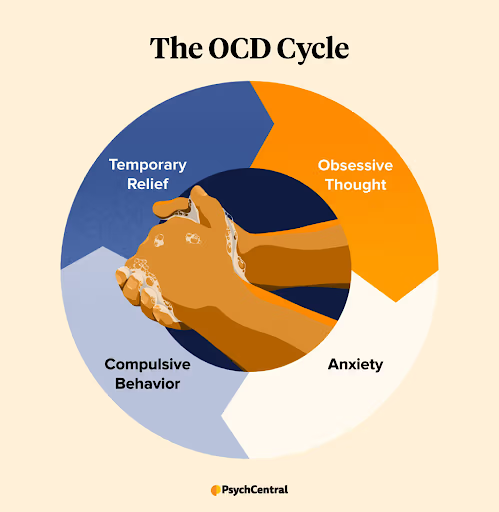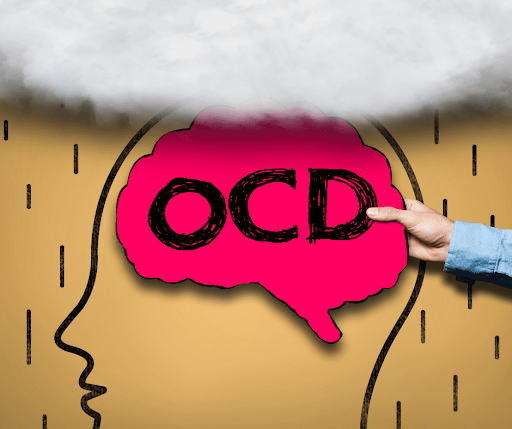
Obsessive-compulsive disorder, or OCD, is a mental condition that causes a person to experience recurring and constant intrusive thoughts. These thoughts may lead to someone trying to do “rituals” or “compulsions” which may make them feel safe or secure. Intrusive thoughts and compulsions constantly interfere with the lives of those with OCD, but little can be done about it.
According to the CDC, or the Centers for Disease Control and Prevention, the cause of OCD is unknown, but there are a number of factors that are linked to individuals who have OCD, which include childhood trauma, health problems during pregnancy, family history, and biological factors. People who are diagnosed with OCD are usually diagnosed when they are adults, but it’s not impossible for adolescents to be diagnosed earlier.
People who suffer from OCD often struggle with intrusive thoughts. There are a number of themes that these thoughts may fall under, but some of the most common ones are the following:
Contamination: The fear of interacting with germs or dirt. Those who struggle with intrusive thoughts related to OCD may need to constantly wash their hands or their bodies as a response.
Religious: The fear of upsetting a higher power and being obsessed with being morally right or wrong. Some may think that intrusive thoughts are the guidance of a higher power, and may try to appease them. As a response, they may try to pray excessively.
Death: The fear of dying. People with OCD may fear what happens after death or dying in general. They might worry about what’s in their food or think that they’re gonna die if they drive on a specific date or go out to eat.

There are plenty more topics that intrusive thoughts are about, including violence, responsibility, and false memory, which interfere with someone’s life just as much. There are plenty of people who struggle with obsessive-compulsive disorder but are often unable to share their experiences due to it being considered a taboo in society. There’s a very false misconception that OCD is only about being very neat and organizing everything perfectly. While some people who suffer from OCD do have intrusive thoughts related to contamination and perfection, this is not a universal experience that people with OCD all relate to. OCD is not something beneficial or helpful. Sufferers deal with constant intrusive thoughts and constant urges to commit to compulsions to avoid anxiety or stress which is caused by OCD. The stigma that OCD is just a quirk that helps people stay clean is wrong. Treating a mental illness that ruins lives as a quirk is dangerous.
It’s incredibly hard to deal with constant intrusive thoughts every day. An anonymous student here at Saugus stated the following on the issue: “It’s really tiring doing compulsions every single day. If I don’t do them, I gain a lot of anxiety and fear. It’s hard to even do basic tasks without needing to pinch myself or count (compulsions).” Fortunately, in the modern world, we have access to counseling and medication. People with a milder form of OCD may take cognitive behavior therapy to help shape their responses and reactions to compulsions. Some people may need to take medication though, usually a type of antidepressant. If antidepressants do not work, your provider may advise you to take another form of psychiatric medicine. More treatments are also being studied, however. In 2018, the FDA allowed experimental use to begin on a treatment combining repetitive transcranial magnetic stimulation, or rTMS, with medication and/or psychotherapy. NIMH.gov states that “In 2022, this approval was extended to standard TMS devices.”
OCD is a very severe mental condition, but with modern medicine and therapy, we can try to treat it to the best of our abilities and raise awareness on the subject. Hopefully, we can break the stigma surrounding OCD and those who suffer from it.






